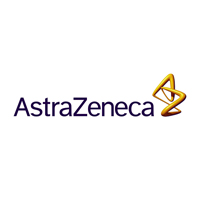Fasenra is now the only respiratory biologic that offers the choice of administration at home or in a doctor’s office with eight-week maintenance dosing
AstraZeneca plc (LON: AZN) has today announced that the US Food and Drug Administration (FDA) has approved the self-administration of Fasenra (benralizumab) in a pre-filled, single-use auto-injector (the Fasenra Pen).
The approval is supported by data from the Phase III GRECO trial and the Phase I AMES trial. The safety and tolerability of Fasenra in these trials were consistent with the established profile of the medicine.
Mene Pangalos, Executive Vice President, BioPharmaceuticals R&D, said:
“Fasenra is the only respiratory biologic that can be given every eight weeks after the initial loading-dose period. Today’s news means we can now offer Fasenra in an even more convenient way, giving US healthcare providers and patients the option of administering Fasenra at home or in a doctor’s office, and making treatment more accessible to patients with severe eosinophilic asthma.”
Fasenra self-administration and the Fasenra Pen are also approved in the European Union (EU). Fasenra is currently approved as an add-on maintenance treatment for severe eosinophilic asthma in the US, EU, Japan and other countries.
About GRECO and AMES
GRECO is a Phase III multicentre, open‑label, 28-week trial designed to assess patient‑ or caregiver‑reported functionality, performance and reliability of a pre-filled auto-injector device with a fixed 30mg dose of Fasenra administered subcutaneously (SC) every four weeks in clinic and in an at‑home setting in 120 adults with severe, uncontrolled asthma.1 The majority (97%) of at-home administrations by patients or caregivers were successful at week 12 and week 16 and nearly all (96%) of the returned pre-filled auto-injector devices used to administer Fasenra at home were evaluated as being functional at week 12 and week 16.
AMES is a multicentre, randomised, open-label, parallel-group Phase I trial in healthy people to compare the pharmacokinetic (PK) exposure following single 30mg SC administration of Fasenra by using pre-filled syringe or pre-filled auto-injector devices.2 Fasenra PK exposure was comparable following SC administration via a pre-filled syringe or a pre-filled auto-injector. Eosinophils were rapidly depleted in patients from both device-type groups.
The safety profile in both trials was similar to previous trials, with no new or unexpected safety findings. The most common adverse events observed in each trial were:
· GRECO: viral upper respiratory tract infection, asthma, upper respiratory tract infection, headache.1
· AMES: nasopharyngitis, headache, oropharyngeal pain.2
About the Fasenra Pen
The US approval of the Fasenra Pen provides healthcare professionals and patients the option for Fasenra to be administered outside of a clinical setting via auto-injector by a patient or caregiver after their healthcare professional decides it is appropriate. The Fasenra pre-filled syringe is available for administration by a healthcare professional.
The Fasenra Pen enables patients and caregivers to administer the medicine via a simple two-step process. The device includes a viewing window and audible clicks at the start and end of the injection to guide patients with successful administration.
About Fasenra
Fasenra is a monoclonal antibody that binds directly to the IL-5 receptor alpha on eosinophils and attracts natural killer cells to induce rapid and near-complete depletion of eosinophils via apoptosis (programmed cell death).3,4
Fasenra is AstraZeneca’s first respiratory biologic, now approved as an add-on maintenance treatment in severe eosinophilic asthma in the US, EU, Japan and other countries, with further regulatory reviews ongoing. Where approved for self-administration, Fasenra will be available both as a fixed 30mg SC injection via a pre-filled, single-use syringe or as the Fasenra Pen, both with a thin 29-gauge needle, administered once every four weeks for the first three doses and once every eight weeks thereafter.
Fasenra is also in development for severe nasal polyposis, other eosinophilic diseases, and chronic obstructive pulmonary disease (COPD). The FDA granted Orphan Drug Designation to Fasenra for the treatment of eosinophilic granulomatosis with polyangiitis (EGPA) in November 2018, hypereosinophilic syndrome (HES) in February 2019 and eosinophilic oesophagitis (EoE) in August 2019.
Fasenra was developed by AstraZeneca and is in-licensed from BioWa, Inc., a wholly-owned subsidiary of Kyowa Kirin Co., Ltd., Japan.
About AstraZeneca in respiratory diseases
Respiratory is one of AstraZeneca’s three therapy areas, and our medicines reached more than 18 million patients as maintenance therapy in 2018. AstraZeneca’s aim is to transform asthma and COPD treatment through inhaled combinations at the core of care, biologics for the unmet needs of specific patient populations, and scientific advancements in disease modification.
The Company is building on a 40-year heritage in respiratory disease and AstraZeneca’s capability in inhalation technology spans pressurised metered-dose inhalers and dry powder inhalers, as well as the Aerosphere delivery technology. The company also has a growing portfolio of respiratory biologics including Fasenra (anti-eosinophil, anti‒IL 5R alpha), and tezepelumab (anti-TSLP) which has been granted Breakthrough Therapy Designation by the FDA in patients with severe asthma and is in Phase III trials. AstraZeneca’s research aims at addressing underlying disease drivers by focusing on the lung epithelium, lung immunity, lung regeneration and neuronal functions.
About AstraZeneca
AstraZeneca is a global, science-led biopharmaceutical company that focuses on the discovery, development and commercialisation of prescription medicines, primarily for the treatment of diseases in three therapy areas – Oncology, Cardiovascular, Renal & Metabolism, and Respiratory. AstraZeneca operates in over 100 countries and its innovative medicines are used by millions of patients worldwide.








































